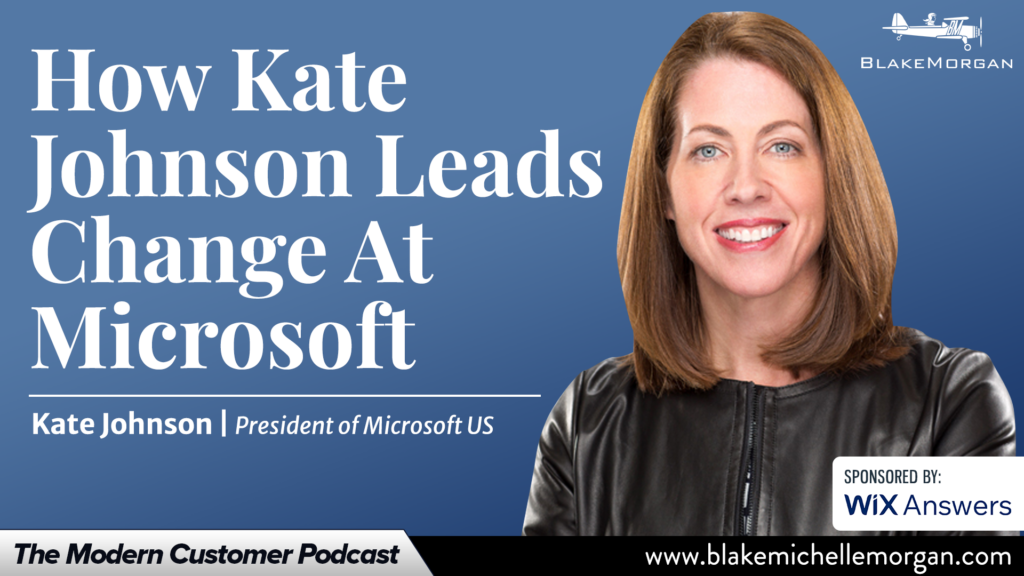When Kate Johnson became president of Microsoft US four years ago, the stock price was at $44. Today, it’s around $260.
What’s the reason for the immense growth? Continual digital transformation and a commitment to change. At Microsoft, Johnson is a powerful change agent who works with CEO Satya Nadella and other executives to set the company on a fast track to the future.
Johnson believes that companies can have all of the ingredients for success, including a strong mission and employee experience. But if they don’t have a culture that enables change, their success will be temporary.
Lasting success comes from a culture that enables and promotes change and that is continually evolving and looking towards the future.
But change doesn’t just come from culture; it comes from people. Leaders working for change will find that their people fall into three buckets:
1. The people who adore change and are all in.
2. The people who hate change and try to block it.
3. The people who are on the fence and trying to figure out which group to join.
Johnson says that great change leaders listen to all three groups but specialize in helping the people on the fence join the supporters. When that happens, roughly two-thirds of people will be supportive of change, which helps leaders reach critical mass for the change they are trying to achieve.
Being a change agent requires a variety of skills, including the courage to muscle through negative feedback and figure out which signals are real and which are just noise. Change agents have to be great listeners and be both real and pragmatic. Even with the challenges, Johnson says it is the most fulfilling job imaginable.
Johnson’s favorite problems to solve are the complex challenges that are steeped in people. She says that’s where the best and most impactful change occurs. But working with people means working with their egos. One of Johnson’s proven ways of calming egos is simply asking people, “Tell me more.” The simple sentence helps people realize she is listening and allows them to share their viewpoint calmly and without ego. It doesn’t mean she always agrees with the other side, but it helps her better understand people and make progress.
Microsoft’s digital transformation has brought about many changes, but Johnson says the main focus has been changes related to customers. She believes that if the company is going to obsess over one thing, it needs to be customers.
Customer-centric leaders need to be change agents. By understanding people, cutting through ego and obsessing over customers, leaders can make lasting and impactful change within their organizations.
_________________
*Sponsored by Wix Answers
It’s been a year of change for businesses. What’s making this period most challenging is the lack of clarity. But, that’s also where there’s an opportunity to stand out by building trust in your relationships with your customers with agile communication.
Wix Answers takes a new approach to customer support by helping you adapt quickly to know exactly what your customer needs and when they need it.
Go and see for yourself today at WixAnswers.com.
_________________
Blake Morgan is the bestselling author of The Customer of the Future. Sign up for her new course here.

